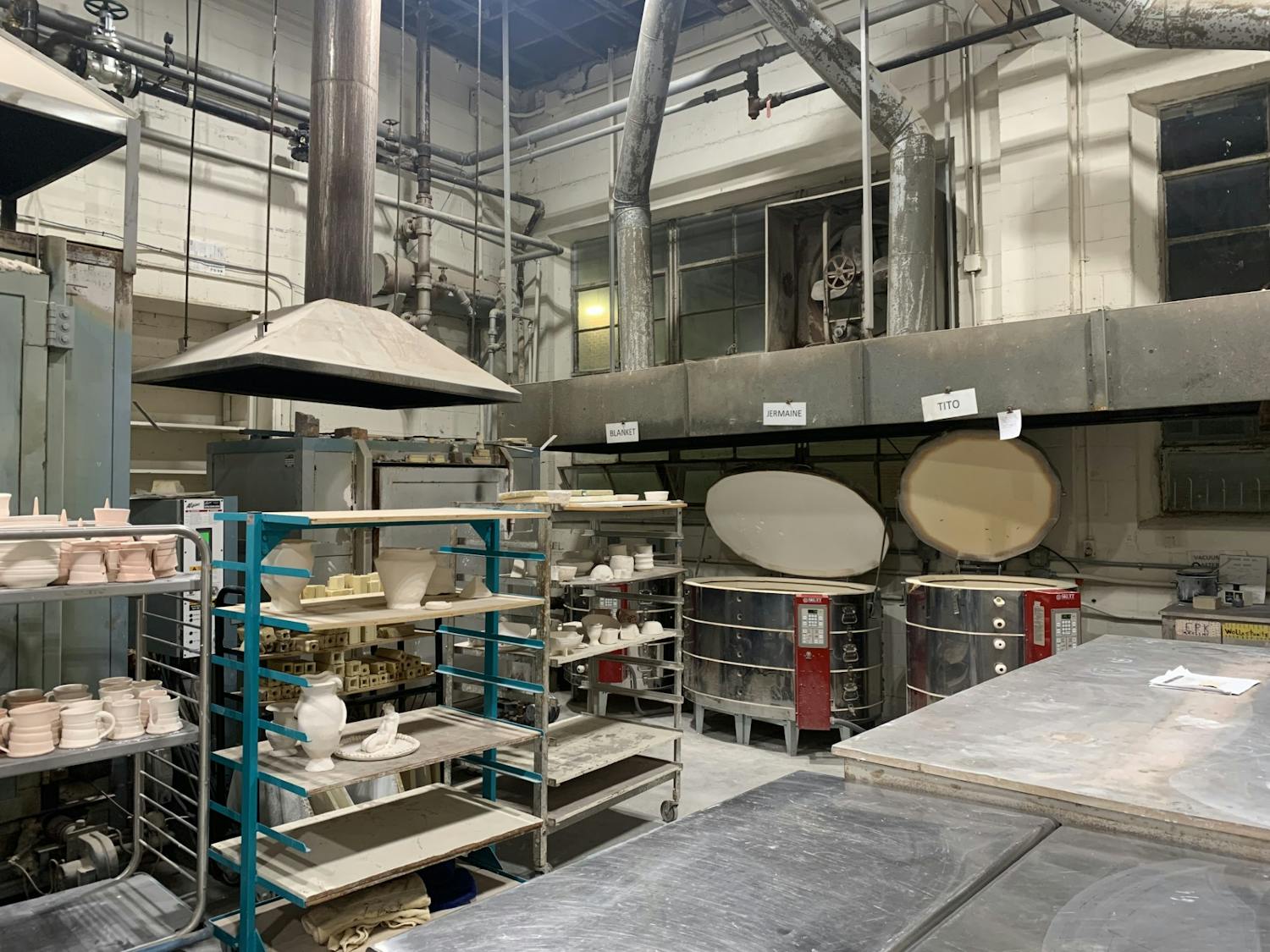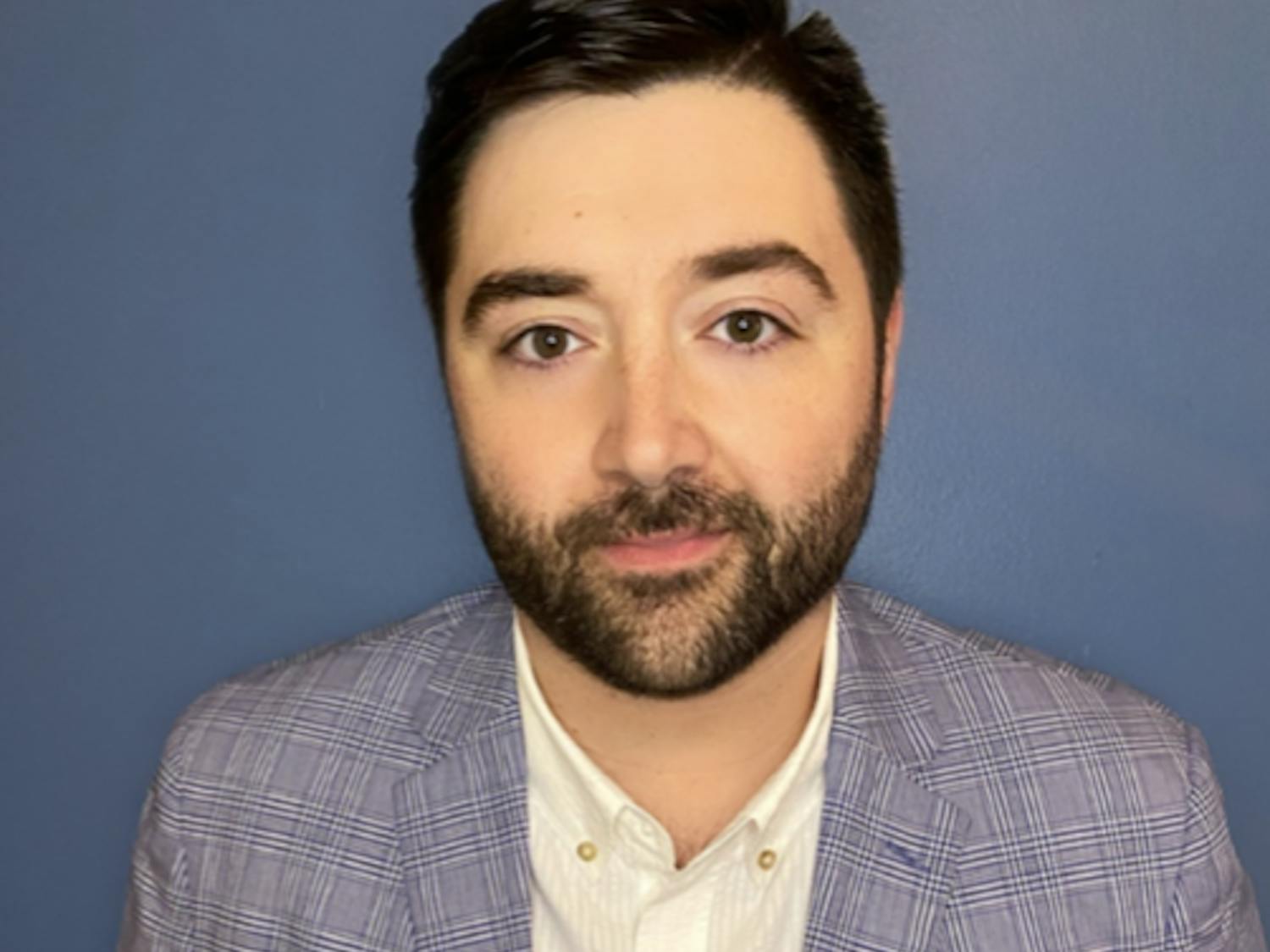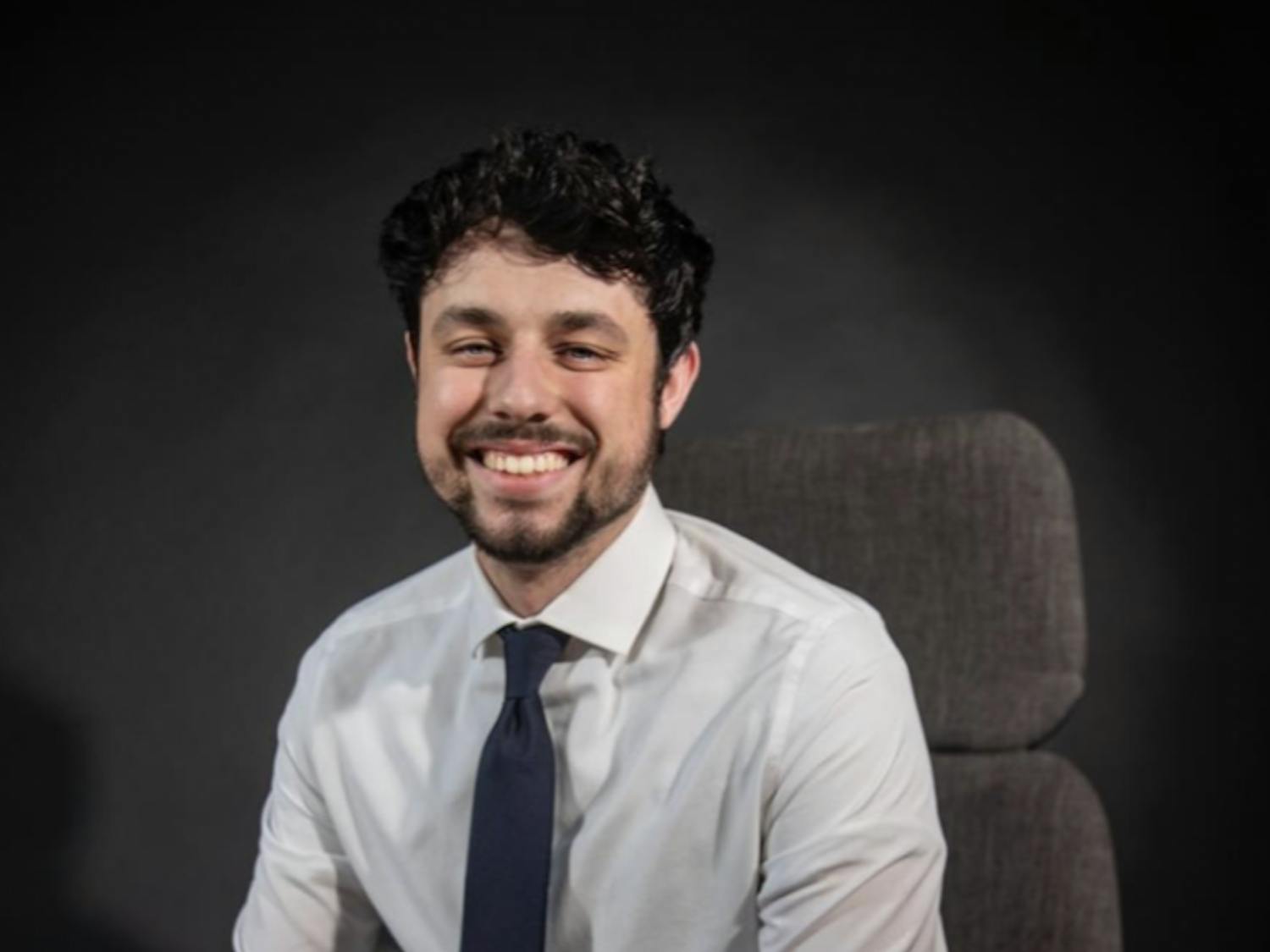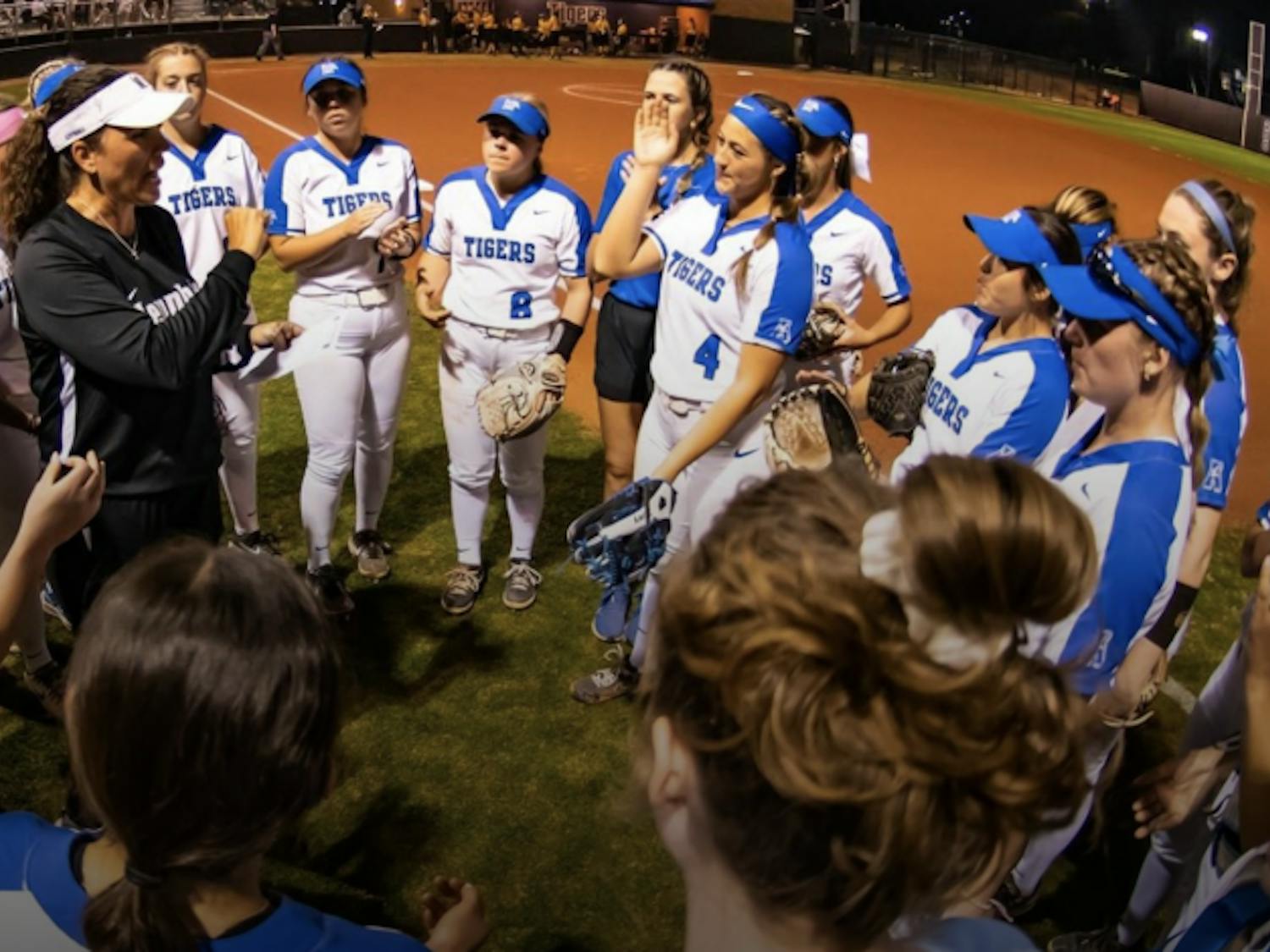With the University of Memphis basketball team trailing 64-63 with 3.1 seconds remaining, sophomore guard Antonio Anderson calmly stepped to the free-throw line and performed his normal routine: spin the basketball into his left hand, followed by one hard dribble with his right hand, bend the knees, rise up and release. Swish.
The shot was like a salvo; quieting and weakening an enemy army's advances. With the score knotted at 64, Texas A&M strategically called a timeout to rattle Anderson, who struggled from the line prior to his recent conversion. Once again, Anderson stepped up to the line. Swish.
Up 65-64 with mere seconds remaining, the Memphis bench locked arms in solidarity as the Elite Eight of the 2007 NCAA Men's Basketball Tournament began to come into focus. Once Texas A&M's half-court shot fell short of the mark, the city of Memphis clapped back with tremors of their own. Bars around town erupted in jubilation. Post-game radio shows were overwhelmed with dozens of callers.
During his tenure, former head basketball coach John Calipari proclaimed numerous times that moments like these were the "good old days:" a time when Memphis Tiger basketball was front-and-center, featured in national publications and considered appointment television for everyone around town other than the fans lucky enough to squeeze into sold out FedEx Forum seats.
But Calipari warned the Tiger faithful that the good old days would not last forever, and unfortunately, he was right.
Not long ago, Memphis Tiger basketball was the lifeblood that coursed through the veins of the city. It was a common factor that brought Memphians together regardless of race, color, religious creed or financial background. In its current state, the basketball program is a shell of its former self, and apathy and negativity have settled in around their dwindling fan base.
Since reaching its apex during the late Calipari years, the program has regressed on both a local and national level. According to Mark Giannotto of The Commercial Appeal, 2016-17 season attendance figures plummeted to a paltry 9,622 — a 35-year low. The last time attendance averages were that minuscule, the Tigers called the Mid-South Coliseum home — and one that seated 10,085 at maximum capacity. For comparison's sake, FedEx Forum holds 18,119. That's a lot of empty seats and a bad look for a program that, according to Memphis Business Journal, operated with the 12th highest budget in Division 1 men's basketball in 2016, at $11.2 million.
Anderson, the hero of that Sweet Sixteen battle in San Antonio more than 10 years ago, is now boys head basketball coach at Lynn English High School in Lynn, Massachusetts. Memphis' recent struggles pain Anderson, but he trusts in the university and says the coaching staff simply needs to bring in quality players that appreciate what it means to play for Memphis.
"I think Memphis is the best place in the world to play," Anderson said. "Bring guys in that want to be at Memphis, who want to embrace it, and not just guys who are there because they want a basketball scholarship."
The ability to accept the university and the city is an admirable trait for any prospective recruit, but possessing Memphis-level talent is a completely different story. Anderson and his teammates were a collection of top 100 national players according to multiple recruiting services. The current iteration of the Memphis Tigers features zero top-100 talents.
Former Memphis AAU basketball coach and local recruiting insider Keith Easterwood says that it's a matter of recruiting philosophy, one that current University of Memphis Men's Basketball Head Coach Tubby Smith is unwilling to adopt. Easterwood says that Smith is non-existent when it comes to cultivating relationships with those in charge of running local AAU basketball programs. These programs are fertile with top-ranked national recruits, and they are located in Smith's own backyard. In today's college basketball landscape, the top schools have connections with AAU coaches and sponsors. The summer AAU circuit is where the top-ranked kids play these days, including Team Penny local products such as D.J. Jeffries, Malcolm Dandridge, Chandler Lawson and James Wiseman.
"If I'm riding a mule and you're riding Secretariat, I don't have a prayer in hell," Easterwood said regarding the importance of recruiting to compete in college basketball. "They need to stabilize the Memphis basketball market. Now is that through (Norton) Hurd, is that through Team Penny, is that through Ernie Kuyper, is that through Cowboy (Eric Robinson), the high school coaches, however – I have no idea."
Smith's recruiting strategy is relatively old school – focus on the family, build relationships with parents and directly through the high school coach. This is how he plucked former White Station High School guard Andre Hollins out of Memphis during his time at the University of Minnesota.
Easterwood says that Smith is not going to all of a sudden change his ways despite how "reinvigorated" or "refocused" he says he is. There is a gray area in NCAA recruiting where college coaches provide minor benefits to the men and influencers in charge of summer league teams. Smith, however, refuses to swim in that area and prefers to play it safe in the shallow end of the recruiting pool.
"He's not paying Norton Hurd, or Ernie Kuyper, or anybody involved with Team Penny for workouts, or business, or anything like that," Easterwood said. "And that's going on rampant in the city of Memphis right now (with other college coaches). How that affects him with (the high-end local recruits) going forward, I have no idea because obviously those guys are going to be good players but he's not going to cater and pamper (anyone), take them to dinner, get them gear, let them work camp, let them do this – whatever. That's not in his DNA, he's not gonna do it."
Smith's early returns on recruiting have been mediocre at best. His first recruiting class featuring forward Jimario Rivers and recently departed guard Keon Clergeot was rated #98 in the country according to Scout.com. The 2017 class, featuring forward David Nickelberry and guard Jamal Johnson, improved to #49, but still short of the level Memphis has historically recruited at. Even more troublesome is the fact that Memphis is nowhere to be found on any of the top 100 players recruiting lists in 2018 and beyond.
Former Memphis Tiger basketball beat writer for the Commercial Appeal and current USA Today college sports columnist Dan Wolken agrees with Easterwood concerning the importance of recruiting in college basketball.
"It's a player's game and you can develop some overlooked guys, some diamonds in the rough, so to speak," Wolken said. "But at the end of the day, talent usually wins. And if Tubby Smith wants to succeed at Memphis, he will ultimately need to improve his procurement of talent."
History shows that even a massive salary and with three years left on his contract, Smith should not feel overly comfortable in his coaching position. After all, the university and its boosters quickly turned on their favorite son, Memphis legend Larry Finch. Finch coached the Tigers to a subpar season in 1996-97 (16-15) and failed to secure local high school stars Robert O'Kelley, Tony Harris and Cory Bradford, which sealed his fate.
Maybe Smith should heed the words of another one of his predecessors, the late Dana Kirk.
"We just get in our cars, and we're never more than a half-a-tank of gas roundtrip away," Kirk said to the Chicago Tribune before the Final Four in 1985. "If it turns out well, okay. If not, we'll get fired."





